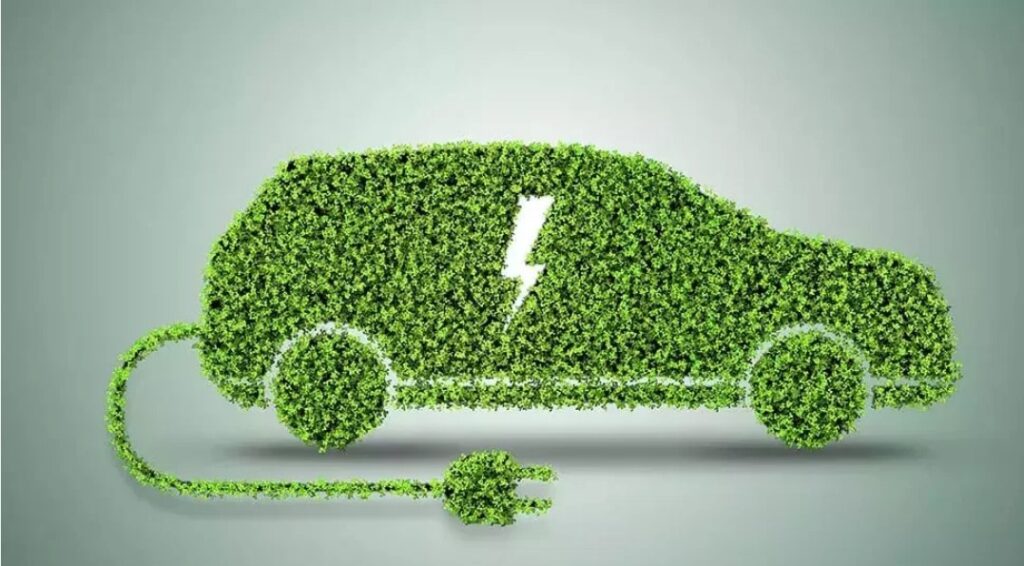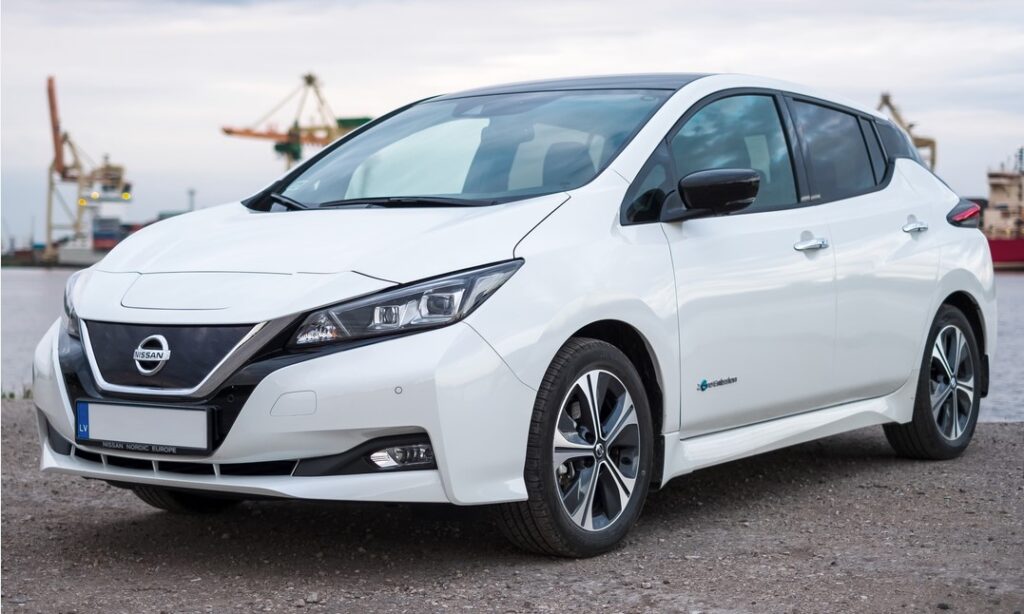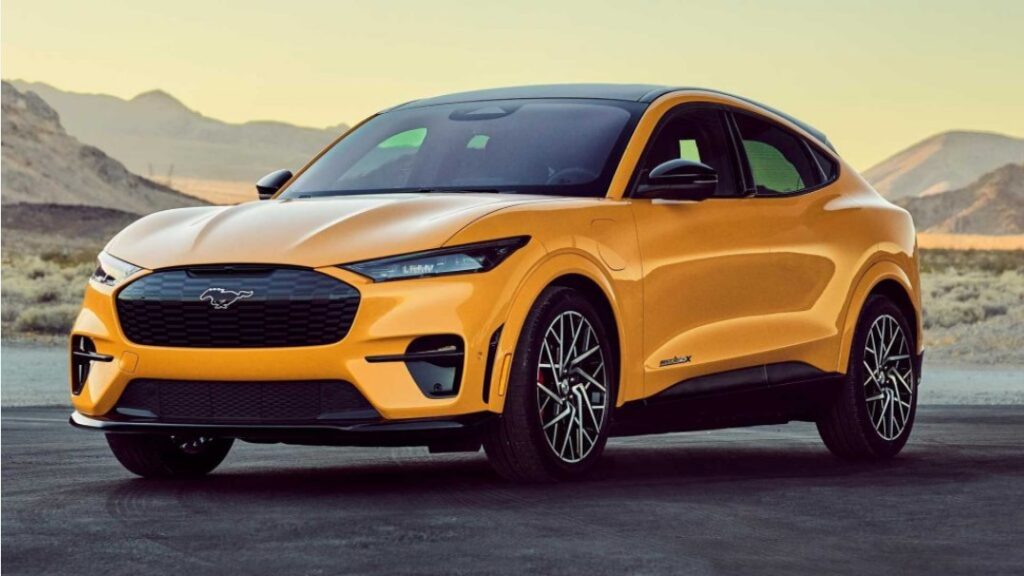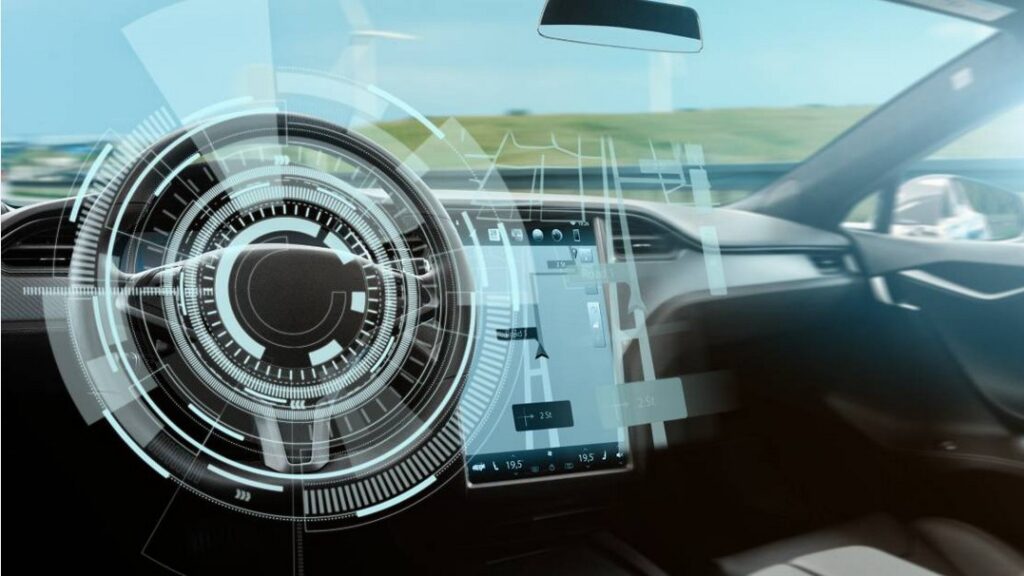In the rapidly evolving automotive landscape, Electric Cars have emerged as the go-to option for eco-conscious drivers looking to reduce their carbon footprint while enjoying cutting-edge technology.

As more manufacturers enter the electric vehicle (EV) market, a wide range of options has become available, catering to different budgets and preferences.
In this article, we’ll explore the best Electric Cars for every budget in 2025, focusing on their standout features, pricing, and overall value for money.
Verdict on Electric Cars
When it comes to choosing a vehicle in 2025, Electric Cars offer unparalleled advantages in terms of efficiency, sustainability, and advanced technology.
Whether you’re looking for an affordable entry-level EV or a high-end luxury model, the market is brimming with options that cater to every budget.
With continuous advancements in battery technology and charging infrastructure, Electric Cars are not just the future—they are the present.
In 2025, they offer a viable and attractive alternative to traditional combustion-engine vehicles, providing long-term savings, a smoother driving experience, and a significant reduction in environmental impact.
What Are Electric Cars?
Electric Cars are vehicles powered entirely by electricity, using electric motors and rechargeable batteries instead of traditional internal combustion engines that rely on gasoline or diesel.

These vehicles are recharged using electricity from the grid, either at home or at public charging stations.
Unlike hybrid vehicles, which use a combination of fuel and electricity, Electric Cars are fully electric, meaning they produce zero emissions during operation.
| Electric Car Model | Best Features | User Experience & Reviews |
|---|---|---|
| Tesla Model 3 | – Long-range battery (up to 358 miles) – Autopilot advanced driver assistance – Fast charging via Supercharger network – Premium interior with minimalist design – Over-the-air software updates | – Highly praised for its performance, safety, and cutting-edge technology – Popular among urban drivers and long-distance commuters for its efficiency and ease of use |
| Nissan Leaf | – Affordable pricing – ProPILOT Assist for semi-autonomous driving – e-Pedal for one-pedal driving – Spacious interior – Simple and reliable design | – Known for its reliability and practicality, especially for first-time EV buyers – Appreciated for its ease of use and value for money |
| Ford Mustang Mach-E | – High-performance GT model – Spacious and tech-filled interior – SYNC 4A infotainment system – Available all-wheel drive – Panoramic fixed-glass roof | – Praised for its dynamic driving experience and blend of performance and practicality – A top choice for those seeking an exhilarating electric vehicle |
| Hyundai Kona Electric | – Long range for its class (up to 258 miles) – Compact SUV design – Comprehensive warranty coverage – Smart cruise control – Infotainment with Apple CarPlay/Android Auto | – Popular among city dwellers for its compact size, ease of driving, and value for money – Well-regarded for its practicality and user-friendly features |
| Porsche Taycan | – High-performance drivetrain – Luxury interior with premium materials – Advanced driver assistance systems – Porsche Active Suspension Management – Fast charging capability | – Renowned for its superior driving dynamics and luxury feel – A top choice for those seeking both speed and style in an electric vehicle |
As concerns about climate change and fossil fuel dependency grow, Electric Cars have become increasingly popular due to their environmental benefits and the growing availability of charging infrastructure.
Why Should You Consider Electric Cars?
Choosing Electric Cars offers numerous advantages that go beyond environmental considerations.
Here’s why you should consider making the switch:
- Environmental Impact: Electric Cars produce zero tailpipe emissions, significantly reducing your carbon footprint and contributing to cleaner air.
- Lower Operating Costs: With electricity generally being cheaper than gasoline and fewer moving parts, Electric Cars tend to have lower maintenance and operating costs.
- Incentives and Rebates: Many governments offer incentives, rebates, and tax breaks for purchasing Electric Cars, making them more affordable.
- Quiet and Smooth Ride: Electric motors provide instant torque, resulting in a smooth and quiet driving experience with excellent acceleration.
- Innovative Technology: Electric Cars often come with the latest technological features, including advanced driver assistance systems, over-the-air updates, and infotainment systems.
Best Features for Electric Cars in 2025
Here are the top features that set Electric Cars apart in 2025:
- Extended Range: Improved battery technology now offers longer driving ranges, making EVs more practical for long-distance travel.
- Fast Charging Capability: Many models now support ultra-fast charging, reducing the time needed to recharge the battery.
- Advanced Safety Features: Integration of cutting-edge safety technologies such as automatic emergency braking, lane-keeping assist, and adaptive cruise control.
- Smart Infotainment Systems: Modern Electric Cars feature intuitive infotainment systems with voice control, navigation, and seamless smartphone integration.
- Sustainability Focus: Use of eco-friendly materials and sustainable manufacturing processes.
Top 5 Recent Electric Cars for 2025
Here are the top 5 Electric Cars that you should consider in 2025, catering to different budgets and needs:
1. Tesla Model 3
Best For: Affordable luxury and performance.
Best Features: Impressive range, Autopilot, and fast charging capabilities.
Product Descriptions: Tesla Model 3 continues to set the standard in the electric car market, offering a blend of luxury, performance, and affordability.

With a driving range of up to 358 miles on a single charge, it is a top choice for those looking for an electric car that delivers on all fronts.
The Tesla Model 3 comes equipped with Autopilot, a suite of advanced driver assistance systems, and access to Tesla’s extensive Supercharger network, ensuring quick and convenient charging.
Ryan’s Advice: Ideal for drivers who want a high-performance electric car with cutting-edge technology at a competitive price.
Best Features for Tesla Model 3:
- Long-range battery: Provides up to 358 miles per charge.
- Autopilot: Advanced driver assistance system for safer driving.
- Premium interior: Minimalistic design with high-end materials.
- Fast charging: Compatible with Tesla’s Supercharger network.
- Over-the-air updates: Regular software updates that improve performance.
User Experiences and Case Studies: Highly praised for its performance, safety, and technological innovation, the Tesla Model 3 is a popular choice among urban drivers and long-distance commuters alike.
Price Range: Starting at $39,990, with various configurations available.
2. Nissan Leaf
Best For: Budget-conscious buyers.
Best Features: Affordable pricing, ProPILOT Assist, and e-Pedal technology.
Product Descriptions: The Nissan Leaf is one of the most affordable electric cars available, making it a great entry-level option for those new to electric vehicles.

It offers a practical range of up to 150 miles, making it ideal for city driving and short commutes.

The Leaf is equipped with ProPILOT Assist, a semi-autonomous driving system, and e-Pedal technology, allowing for one-pedal driving.
Ryan’s Advice: A perfect choice for budget-conscious buyers looking for a reliable and affordable electric car.
Best Features for Nissan Leaf:
- ProPILOT Assist: Semi-autonomous driving technology for ease of use.
- e-Pedal: Allows for one-pedal driving, simplifying the driving experience.
- Spacious interior: Comfortable seating and ample cargo space.
- Affordable price: One of the most cost-effective electric cars on the market.
- Simple design: Easy to operate and maintain.
User Experiences and Case Studies: Widely regarded as a reliable and practical option, especially for those who are transitioning to electric cars for the first time.
Price Range: Starting at $28,040, making it one of the most affordable electric cars on the market.
3. Ford Mustang Mach-E
Best For: Performance enthusiasts.
Best Features: Sporty design, extended range, and advanced technology.
Product Descriptions: The Ford Mustang Mach-E combines the iconic Mustang performance with the benefits of an electric car.

It offers multiple powertrains, including a high-performance GT variant, and a range of up to 305 miles.

The Mach-E features a modern, sporty design and is packed with advanced technology, including the SYNC 4A infotainment system.
Ryan’s Advice: Perfect for drivers who want the performance of a Mustang with the efficiency of electric cars.
Best Features for Ford Mustang Mach-E:
- High-performance GT model: Delivers exhilarating acceleration and handling.
- Spacious interior: Comfortable and tech-filled cabin for all passengers.
- SYNC 4A infotainment system: Advanced infotainment with voice recognition.
- All-wheel drive: Available for enhanced performance in various conditions.
- Panoramic fixed-glass roof: Adds a sense of openness to the cabin.
User Experiences and Case Studies: Well-received for its dynamic driving experience and blend of performance and practicality, making it a top choice among electric car enthusiasts.
Price Range: Starting at $42,995, with higher trims offering additional features and performance enhancements.
4. Hyundai Kona Electric
Best For: Compact SUV lovers.
Best Features: Compact design, long range, and excellent warranty.
Product Descriptions: The Hyundai Kona Electric is a compact SUV that provides a balance of practicality and efficiency.

With a range of up to 258 miles, it offers a competitive alternative to larger, more expensive electric cars.

The Kona Electric is known for its compact size, making it ideal for city driving, while still offering enough space for passengers and cargo.
Ryan’s Advice: Great for those who need a compact, city-friendly SUV with the advantages of electric driving.
Best Features for Hyundai Kona Electric:
- Long range: Capable of up to 258 miles on a single charge.
- Compact SUV design: Ideal for navigating urban environments.
- Comprehensive warranty: Includes battery coverage, providing peace of mind.
- Smart cruise control: Enhances driving comfort with adaptive speed regulation.
- Infotainment system: Features Apple CarPlay and Android Auto integration.
User Experiences and Case Studies: Popular among city dwellers for its compact size, ease of driving, and value for money, making it a practical choice for urban families.
Price Range: Starting at $33,550, offering a solid balance of features and affordability.
5. Porsche Taycan
Best For: Luxury performance.
Best Features: High-performance powertrain, luxury interior, and cutting-edge technology.
Product Descriptions: The Porsche Taycan is a luxury electric sports car that exemplifies Porsche’s commitment to performance and innovation.

It offers rapid acceleration, reaching 0-60 mph in as little as 3.0 seconds, with a top speed of 162 mph.

The Taycan also boasts a luxurious interior with premium materials and advanced technology, including a cutting-edge infotainment system.
Ryan’s Advice: Ideal for those who want top-tier luxury and performance in an electric car.
Best Features for Porsche Taycan:
- High-performance drivetrain: Offers exhilarating acceleration and top speed.
- Luxury interior: Premium materials and cutting-edge design.
- Advanced driver assistance systems: Ensures a safe and secure driving experience.
- Porsche Active Suspension Management: Provides a smooth and adaptive ride.
- Fast charging: Capable of replenishing up to 80% of battery capacity in 22.5 minutes.
User Experiences and Case Studies: Renowned for its superior driving dynamics and luxury feel, the Taycan is a top choice for those seeking both speed and style in an electric car.
Price Range: Starting at $86,700, with various configurations and customization options available.
Comparison of Electric Cars vs. Traditional Gasoline Cars
When considering a new vehicle, many consumers weigh the pros and cons of Electric Cars versus traditional gasoline cars.

Both types of vehicles have distinct advantages and disadvantages, depending on your priorities.
Below is a comparative analysis focusing on cost, environmental impact, performance, and convenience, which will help you make an informed decision.
1. Cost
- Electric Cars: While the upfront cost of Electric Cars is often higher than that of gasoline cars, the total cost of ownership tends to be lower over time. Electric vehicles (EVs) benefit from lower fuel costs—electricity is generally cheaper than gasoline—and reduced maintenance costs, as they have fewer moving parts and don’t require oil changes.
- Gasoline Cars: Gasoline cars typically have a lower initial purchase price, but fuel and maintenance costs can add up significantly over the vehicle’s lifespan. Gasoline prices are subject to fluctuations, which can make budgeting for fuel costs more unpredictable.
2. Environmental Impact
- Electric Cars: One of the most significant advantages of Electric Cars is their positive impact on the environment. EVs produce zero tailpipe emissions, which helps reduce air pollution and greenhouse gas emissions. Additionally, as the energy grid becomes greener with more renewable energy sources, the overall carbon footprint of driving an electric car decreases even further.
- Gasoline Cars: Traditional gasoline cars emit carbon dioxide and other pollutants, contributing to climate change and poor air quality. While some newer gasoline cars are more fuel-efficient and produce fewer emissions, they still rely on fossil fuels and contribute to environmental degradation.
3. Performance
- Electric Cars: Electric Cars offer instant torque, resulting in rapid acceleration and a smooth, quiet driving experience. Many EVs also feature a low center of gravity due to battery placement, which enhances handling and stability. However, the driving range of electric cars can vary, with some models offering more limited distances before needing to recharge.
- Gasoline Cars: Gasoline cars have traditionally been known for their performance, especially in terms of range and refueling speed. Gasoline engines can provide more consistent power over long distances without the need for frequent refueling, making them a better option for long road trips. However, they are generally noisier and less smooth compared to electric motors.
4. Convenience
- Electric Cars: The convenience of Electric Cars largely depends on the availability of charging infrastructure. For those with home charging capabilities, EVs can be incredibly convenient, allowing drivers to “refuel” overnight. Public charging networks are expanding, but the availability and speed of charging stations can vary by location. Planning long trips in an EV requires careful consideration of charging stops.
- Gasoline Cars: Gasoline cars have the advantage of a well-established refueling infrastructure. Gas stations are widely available, and refueling takes only a few minutes, making gasoline cars more convenient for long-distance travel. However, they require more frequent maintenance and visits to the mechanic.
Electric Car Charging Infrastructure
As the adoption of Electric Cars grows, so too does the need for a robust charging infrastructure.

In 2025, the state of charging infrastructure has improved significantly, making it easier for EV owners to recharge their vehicles, whether at home, at work, or on the road.
1. Home Charging Options
- Level 1 Charging: This is the most basic form of charging, using a standard 120-volt household outlet. It’s the slowest option, providing around 3-5 miles of range per hour of charging.
- While convenient for overnight charging, it’s not ideal for those who drive long distances regularly.
- Level 2 Charging: A more efficient home charging solution, Level 2 charging uses a 240-volt outlet, similar to what’s used for large home appliances. It can provide around 20-60 miles of range per hour, making it a practical option for most EV owners.
- Installing a Level 2 charger at home may require an electrician, but it’s worth the investment for the increased charging speed.
2. Public Charging Stations
- Level 2 Public Chargers: These chargers are commonly found in public spaces such as shopping centers, parking lots, and workplaces. They offer the same charging speed as home Level 2 chargers and are often free or require a small fee.
- DC Fast Chargers: For those on the go, DC Fast Chargers provide a much quicker solution, capable of delivering 60-100 miles of range in just 20-30 minutes. These chargers are typically located along highways and major travel routes, making them ideal for long-distance travel.
- However, not all Electric Cars are compatible with all types of DC fast chargers, so it’s important to know your vehicle’s capabilities.
3. Advancements in Fast-Charging Technology
- Ultra-Fast Charging: New advancements in fast-charging technology are pushing the boundaries of what’s possible. Ultra-fast chargers, such as those in Tesla’s Supercharger V3 network, can deliver up to 75 miles of range in just 5 minutes.
- Other manufacturers are developing similar technologies, aiming to reduce charging times even further.
- Wireless Charging: Another emerging technology is wireless charging, which allows EVs to charge without needing to plug in. While still in its early stages, this technology could revolutionize the convenience of charging, particularly in urban areas where space is limited.
Tips for Long Trips in an Electric Car
- Plan Your Route: Use apps or in-car navigation systems that map out charging stations along your route. Tesla’s in-car navigation, for example, automatically routes you through Supercharger stations.
- Charge Strategically: Try to charge during breaks for meals or sightseeing to minimize downtime.
- Check Charger Availability: Some public chargers may be in high demand, so it’s wise to check availability before arrival to avoid delays.
Latest Innovations in Electric Cars for 2025
The Electric Cars market is evolving rapidly, with new innovations continually pushing the boundaries of what these vehicles can do.

In 2025, several technological advancements are shaping the future of electric mobility.
1. Improved Battery Technology
- Solid-State Batteries: One of the most anticipated advancements is the development of solid-state batteries. Unlike traditional lithium-ion batteries, solid-state batteries use a solid electrolyte, which can store more energy, charge faster, and reduce the risk of overheating. This technology could significantly increase the range of Electric Cars while also making them safer and more durable.
- Faster Charging Times: Battery technology improvements also include faster charging capabilities. Companies like Tesla and Porsche are leading the way with batteries that can charge up to 80% in just 20 minutes, making electric vehicles more practical for everyday use.
2. Autonomous Driving Capabilities
- Level 3 Autonomy: In 2025, more Electric Cars are expected to feature Level 3 autonomous driving, where the car can handle most driving tasks but still requires the driver to take over when necessary. This technology is already available in some high-end models, and more manufacturers are expected to adopt it.
- Advanced Driver Assistance Systems (ADAS): Even in non-autonomous driving, Electric Cars are leading the way with ADAS, which includes features like lane-keeping assist, adaptive cruise control, and automated parking. These systems not only make driving safer but also enhance the overall driving experience.
3. Enhanced Connectivity Features
- Over-the-Air (OTA) Updates: Many Electric Cars now offer OTA updates, allowing manufacturers to roll out new features, improve performance, and fix bugs without requiring a visit to the dealership. This keeps the vehicle up-to-date with the latest technology and enhances its longevity.
- Smart Integration: Electric Cars in 2025 are more connected than ever, integrating seamlessly with smartphones, smart homes, and other IoT devices. This connectivity allows drivers to control various aspects of their vehicle remotely, such as preconditioning the cabin, checking battery status, or finding the nearest charging station.
4. Sustainability in Manufacturing
- Eco-Friendly Materials: Many manufacturers are focusing on sustainability not just in the operation of Electric Cars, but also in their production. This includes the use of recycled materials, eco-friendly manufacturing processes, and even solar panels integrated into the car’s design to provide supplementary power.
- Second-Life Batteries: Another innovation is the repurposing of used EV batteries for secondary applications, such as home energy storage. This helps reduce waste and maximizes the use of resources.
Electric Car Maintenance and Longevity
One of the key advantages of Electric Cars is their lower maintenance requirements compared to traditional gasoline vehicles.

Understanding the differences in maintenance needs and how to extend the lifespan of your electric car is crucial for maximizing your investment.
1. Maintenance Requirements
- Fewer Moving Parts: Electric Cars have far fewer moving parts than gasoline cars—no engine, transmission, or exhaust system—resulting in less wear and tear. This means fewer things can go wrong, translating to lower maintenance costs and fewer trips to the mechanic.
- Battery Maintenance: The most critical component in an electric car is the battery. While batteries are designed to last many years, they can degrade over time, especially if subjected to extreme temperatures or frequent fast charging. Regular software updates from manufacturers often help in optimizing battery performance and longevity.
- Brake Wear: Regenerative braking in Electric Cars reduces wear on the brake pads, as the motor does much of the braking work. This not only extends the life of the brake system but also contributes to overall vehicle efficiency.
2. Maximizing Lifespan
- Proper Charging Practices: To extend battery life, avoid letting the charge level drop too low or consistently charging to 100%. Keeping the battery within a range of 20% to 80% is generally recommended for daily use.
- Regular Software Updates: Manufacturers often release updates that improve battery management and vehicle performance. Ensure your car is always running the latest software version.
- Routine Inspections: While Electric Cars require less maintenance, regular inspections are still important. Check tire pressure, coolant levels (for thermal management systems), and other components as recommended by the manufacturer.
3. Warranty Options
- Battery Warranty: Most manufacturers offer a separate warranty for the battery, typically covering 8 years or 100,000 miles, whichever comes first. This provides peace of mind, knowing that one of the most expensive components is covered.
- Comprehensive Vehicle Warranty: In addition to the battery, Electric Cars usually come with a comprehensive warranty that covers other parts of the vehicle. This can range from 3 to 5 years and may include roadside assistance.
4. Long-Term Reliability
- Proven Durability: Studies have shown that Electric Cars can be incredibly reliable, with some models surpassing 200,000 miles on the original battery pack. Their simplified powertrain contributes to their durability, making them a long-term investment.
- Resale Value: As the market for Electric Cars grows, so does their resale value. Models with good range, advanced features, and well-maintained batteries tend to hold their value better than older, less efficient electric vehicles.
Environmental Impact of Electric Cars
Electric Cars are often touted for their environmental benefits, and for good reason.
They offer a cleaner alternative to traditional gasoline vehicles, contributing to reduced emissions and a smaller carbon footprint.
1. Reduced Carbon Emissions
- Zero Tailpipe Emissions: Electric Cars produce no tailpipe emissions, meaning they don’t release harmful pollutants like carbon dioxide (CO2), nitrogen oxides (NOx), or particulate matter. This is particularly beneficial in urban areas, where air quality can be significantly impacted by vehicle emissions.
- Lower Lifetime Emissions: Even when accounting for the emissions produced during the manufacturing process and electricity generation, Electric Cars typically have lower lifetime emissions compared to gasoline cars. As the grid becomes increasingly powered by renewable energy, the carbon footprint of driving an electric vehicle continues to shrink.
2. Use of Sustainable Materials
- Recycled and Renewable Materials: Many manufacturers are incorporating sustainable materials into the production of Electric Cars. For example, BMW uses recycled plastics and natural fibers in its electric models, while Tesla is exploring the use of vegan leather and other eco-friendly materials.
- Eco-Friendly Manufacturing Processes: The production process for Electric Cars is also becoming greener. Companies are adopting energy-efficient manufacturing practices, reducing waste, and sourcing materials responsibly.
3. Life Cycle of Electric Car Batteries
- Battery Production Impact: While the production of EV batteries is energy-intensive and has a significant environmental impact, this is often offset by the emissions savings during the vehicle’s operation. Manufacturers are working to reduce the carbon footprint of battery production through better mining practices, recycling, and the use of renewable energy.
- Battery Recycling and Reuse: At the end of their life cycle, EV batteries can be recycled or repurposed for other applications, such as energy storage. This helps reduce the environmental impact associated with battery disposal and extends the useful life of the materials used in battery production.
Government Incentives and Rebates for Electric Cars
Governments around the world are encouraging the adoption of Electric Cars through various incentives, rebates, and tax credits.
These financial incentives make electric vehicles more affordable and accessible to a broader range of consumers.
1. United States
- Federal Tax Credit: In the U.S., the federal government offers a tax credit of up to $7,500 for the purchase of a new electric car. The exact amount depends on the size of the battery and the manufacturer, with some companies like Tesla and GM having phased out credits for their vehicles due to high sales volumes.
- State Incentives: Many states offer additional incentives, such as rebates, tax credits, or reduced registration fees. For example, California offers rebates of up to $2,000 through its Clean Vehicle Rebate Project (CVRP), while New York provides up to $2,000 through its Drive Clean Rebate program.
2. Europe
- Purchase Incentives: European countries are leading the charge in promoting Electric Cars with substantial incentives. In Germany, buyers can receive up to €9,000 in incentives for a new electric car, while France offers up to €6,000. These incentives are often combined with scrappage schemes that provide additional benefits for trading in older, polluting vehicles.
- Tax Benefits: Many European countries also offer tax benefits for electric car owners, such as reduced vehicle taxes, exemption from congestion charges, and lower company car taxes.
3. Asia
- China: As the world’s largest market for Electric Cars, China offers significant incentives, including subsidies for new electric vehicle purchases and exemption from purchase taxes. The government also supports the development of charging infrastructure to make EVs more accessible.
- Japan: Japan provides subsidies for electric vehicle purchases, with amounts varying depending on the vehicle’s price and range. The country also offers tax reductions and exemptions for EV owners.
4. Global Trends
- Carbon Emissions Penalties: In addition to incentives, many countries are implementing penalties for high-emission vehicles, further encouraging the shift to Electric Cars. These measures include higher taxes on gasoline and diesel vehicles, as well as restrictions on the sale of internal combustion engine cars in the coming years.
- Infrastructure Development: Governments are also investing in charging infrastructure, with initiatives to expand the network of public chargers, especially in underserved areas.
By understanding these incentives, consumers can make more informed decisions about purchasing Electric Cars and take advantage of the financial benefits available to them.
Frequently Asked Questions (FAQs)
Q1: What is the main advantage of Electric Cars over gasoline cars?
A1: Electric Cars produce zero emissions, reducing environmental impact, and have lower operating costs.
Q2: How long does it take to charge an Electric Car?
A2: Charging time varies; a Level 2 home charger takes 4-8 hours, while fast chargers can provide 80% charge in 30 minutes.
Q3: Are Electric Cars more expensive to maintain?
A3: No, Electric Cars generally have lower maintenance costs due to fewer moving parts.
Q4: How far can Electric Cars travel on a single charge?
A4: Most Electric Cars have a range of 150-350 miles, depending on the model and battery size.
Q5: Are there enough charging stations available?
A5: Yes, the charging infrastructure is rapidly expanding, with more public stations available each year.
Q6: Do Electric Cars qualify for government incentives?
A6: Yes, many governments offer tax credits, rebates, and other incentives for purchasing Electric Cars.
Q7: Can Electric Cars be used for long trips?
A7: Yes, with proper planning and the use of fast chargers along the route, Electric Cars are suitable for long trips.
Q8: What is the lifespan of an Electric Car battery?
A8: Electric Car batteries typically last 8-15 years, depending on usage and care.
Q9: Are Electric Cars safe?
A9: Yes, Electric Cars are equipped with advanced safety features and often perform well in crash tests.
Q10: What are the best Electric Cars in 2024?
A10: Some top models include the Tesla Model 3, Nissan Leaf, Ford Mustang Mach-E, Hyundai Kona

